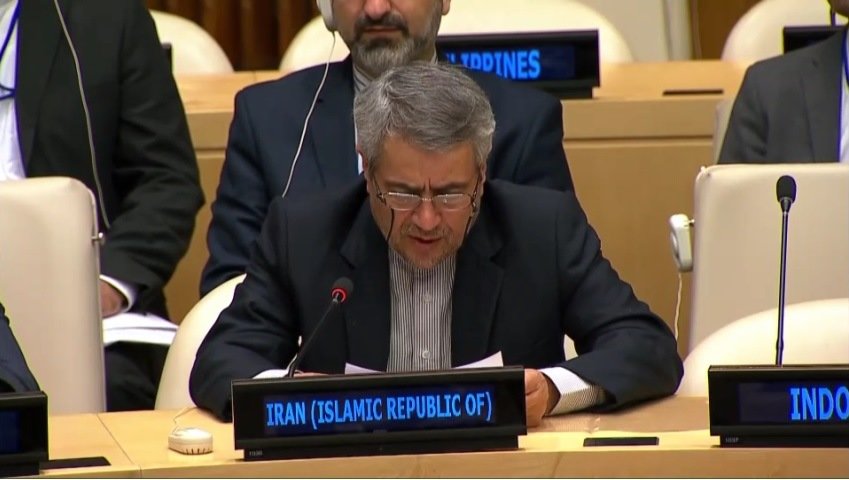U.S. terribly failed to end violence in Afghanistan, Iranian diplomat says

TEHRAN – Iran’s ambassador to the UN says more than a decade on, the U.S. so-called war on terror has failed to uproot violence and extremism in Afghanistan and the rest of the world, calling on the international community to help the Kabul government with its fight against terrorism.
Addressing the UN General Assembly on Monday, Gholam-Ali Khoshrou said terrorist attacks in the globe had increased every year since the onset of Washington’s invasion of Afghanistan in 2001, Press TV reported.
“More than a decade after its invasion, Afghanistan, the region and the world is not any safer,” the Iranian diplomat added.
The United States invaded Afghanistan in October 2001 after the September 11 attacks on New York and Washington, and overthrew the Taliban regime. But U.S. forces have remained bogged down there through the presidencies of George W. Bush, Barack Obama and now Trump.
Taliban militants have warned that they will be stepping up their attacks until the U.S. forces fully withdraw from Afghanistan after more than a decade and half.
The Daesh terror group has also taken advantage of the chaos to establish a foothold in Afghanistan, further complicating the Afghan government’s efforts to uproot terrorism.
‘Military strategy not the only solution to Afghan crisis’
Khoshrou said Iran believes that the deteriorating security situation in the war-ravaged Afghanistan cannot be resolved “solely through military strategies”.
He further reiterated Tehran’s support for “any Afghan-led peace process.”
He underlined the importance of regional cooperation with Afghanistan in consolidating “peace and development in the region.”
The diplomat also called for “sustained support of the international community to support the Afghan government in its fight against terrorism and extremism, as well as to face the complex security, economic, and development challenges.”
He further expressed concern over a recent joint survey by the UN and the Afghan government which revealed that opium production in the restive country has almost doubled so far in 2017 compared to last year.
According to the survey issued last week by the Afghan Ministry of Counter Narcotics and the UN Office on Drugs and Crime (UNODC) the opium production rose by 87 percent and stands at a record level of 9,000 metric tons (9,921 U.S. tons) so far this year, compared to 4,800 metric tons (5,291 U.S. tons) in 2016.
Afghanistan is the world's top cultivator of poppy, from which opium and heroin are produced. The Taliban militants are heavily involved in the poppy cultivation and opium distribution especially in areas under their control.
Khosrou said that “under-development, low-income and lack of economic opportunities” have provided “fertile grounds and abundant recruitment opportunities for terrorist groups and drugs networks.”
Elsewhere in his remarks the Iranian diplomat recalled that the Islamic Republic had hosted millions of Afghan refugees for decades, saying that Tehran was participating in the Tripartite Commission (Iran, India, Afghanistan) aimed at their “voluntary, safe, dignified and gradual” repatriation.
“Success in voluntary repatriation first and foremost depends on providing the reasonable needs of repatriated refugees in Afghanistan, and underscores the necessity for mobilizing more international support for this purpose,” he said.
Iran has been hosting large numbers of Afghan refugees, who fled wars and conflicts in their country. In recent years, Tehran has been urging the Afghan nationals to return home voluntarily to contribute to the reconstruction of their homeland.
More than 350,000 Afghan refugee children are now in school in Iran while some 48,000 undocumented Afghan children were allowed last year to enroll for the first time in Iranian public schools, according to a recent UNHCR report.
SP/PA
